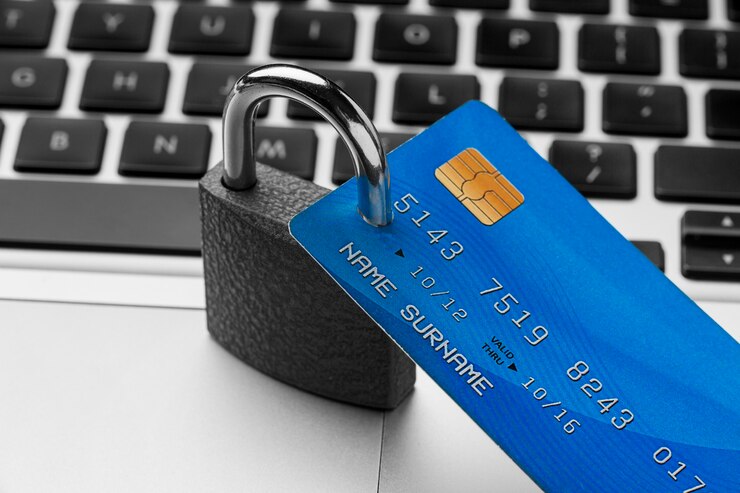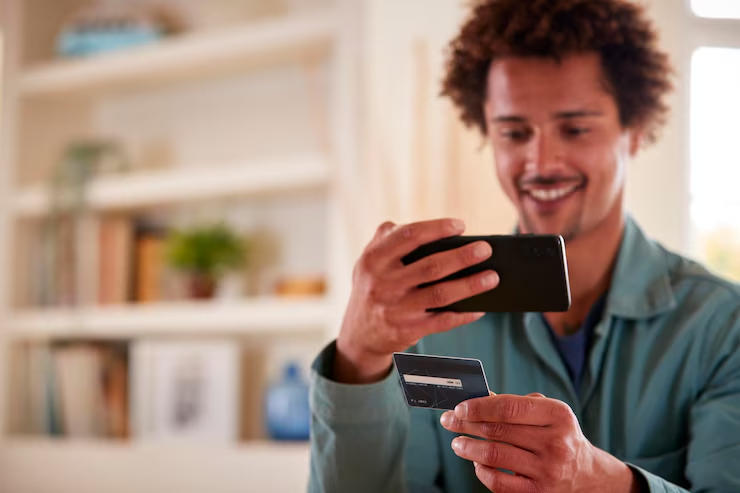Credit Card Security Tips: Protect Your Finances with Confidence
Take a look at essential credit card security tips to safeguard your finances and personal information. Check it out now!
Protect Your Cards, Protect Yourself!
Credit cards make life so much easier, right? You can shop, travel, and pay bills with just a swipe or a tap. But, there’s always a flip side: fraud and scams.
Criminals are constantly finding sneaky ways to get their hands on your information. So, how do you stay one step ahead? It’s easier than you think.
With a little know-how and some simple habits, you can keep your credit card secure and enjoy peace of mind. Let’s dive into some practical tips that will help you protect your finances.

Credit card security tips to protect your finances
1. Keep your credit card information private
Be super cautious about who you share your card details with. If someone asks for your information over the phone, email, or a messaging app, make sure you trust them and that you’re the one who initiated contact.
Scammers are clever, so always double-check before sharing anything. Remember to avoid leaving your card details lying around or jotting them down where someone could find them.
2. Monitor your transactions regularly
Keeping an eye on your credit card transactions is like keeping tabs on your wallet. Most card issuers have apps or online portals that make it easy to check your purchases.
Better yet, set up alerts for any unusual activity, like big purchases or transactions in a new location. If something doesn’t look right, report it to your card issuer immediately.
3. Use secure websites for online shopping
Shopping online is convenient, but it comes with risks. Always check that the website is secure before entering your card information.
Look for a padlock icon in the address bar and make sure the URL starts with “https.” And here’s a pro tip: avoid public Wi-Fi for online shopping. Hackers love to snoop on unsecured networks. If you can, stick to your home Wi-Fi.
4. Enable two-factor authentication (2FA)
Two-factor authentication might sound fancy, but it’s really just an extra step to keep your account safe.
When you log in, you’ll need to confirm your identity with something like a code sent to your phone. It’s a simple way to make it harder for anyone else to access your account, even if they somehow get your password.
5. Beware of phishing scams
Ever gotten an email or text that looked legit but felt a little off? That’s probably a phishing scam.
These fake messages are designed to trick you into sharing your credit card info. Always be cautious of unsolicited requests for personal or financial details.
If something feels fishy, contact the company directly using their official contact info to double-check.
6. Set Spending Limits
Did you know you can set spending limits on your credit card? It’s a great way to keep yourself in check and minimize potential losses if your card is compromised.
For example, you can set a daily limit or block international transactions if you’re not traveling anytime soon. Check with your card issuer for options.
7. Report lost or stolen cards immediately
If your credit card goes missing, don’t wait—report it right away. Most issuers have 24/7 hotlines for emergencies like this.
Acting quickly not only prevents further misuse but also ensures you’re not held responsible for fraudulent charges. Plus, they’ll send you a replacement card in no time.
9. Use contactless payments when possible
Contactless payments are not just convenient—they’re also more secure. Whether you’re using a tap-to-pay card or a mobile wallet, these methods use encryption to keep your info safe.
Mobile wallets often require biometric authentication, like your fingerprint, adding another layer of security.
10. Educate yourself about common scams
The more you know, the safer you’ll be. Stay informed about new fraud schemes by checking updates from your credit card issuer or financial institutions.
Read articles, attend webinars, or even watch quick online videos. Knowledge is power, and staying in the loop can help you avoid falling for scams.
Conclusion
Protecting your credit card doesn’t have to be a hassle. By following these straightforward tips, you can enjoy the convenience of credit cards without the stress of worrying about fraud. Keep your information private, stay alert, and take advantage of tools like 2FA and transaction alerts.





